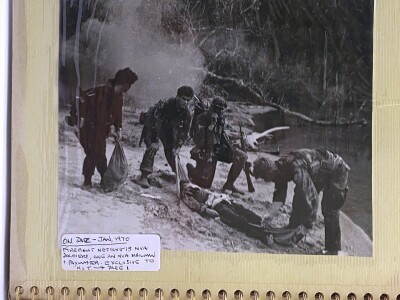
Today is the first day of the latest viaLibri Virtual Showcase…
This online book fair has many international booksellers taking part – and we’re introducing you to some of them here, and on social media – so take a look at their chosen highlights and their booths:
The Alta Collection
Specialists in early books and manuscripts related to William Shakespeare.
One highlight being: Manuscript fragment of Vincent of Lérins’ Commonitorium. A previously unknown manuscript written in Elizabethan handwriting with palaeographic features linking it closely to Shakespeare’s.

Plain Wrapper Press Redux
Specialists in finely-printed contemporary limited editions of poetry, short stories, and scholarly texts, illustrated with photogravures, wood engravings, silk-screen prints, and archival inkjet prints.
One highlight being: Declaration of Sentiments. A manifesto that emerged from the 1848 women’s rights convention in Seneca Falls, New York, re-published on its 175th anniversary.

Harrison-Hiett
Specialists in caricature, and illustrated items, Catholic and Anti Catholic material. Plus (as French residents) wine and winemaking!
One highlight being a ‘Showcase Exclusive’: Le Canard. A wonderful illustrated satirical attack on the Parisian aristocracy for their perceived disrespect following the funeral of Victor Hugo in 1885.

Crossroads Books
Specialists in occult and geology – books, maps, and ephemera.
One highlight being: The Occult Sciences. The Philosophy of Magic, Prodigies and Apparent Miracles. Going back to Egypt and the priesthood which was hidden from the public eye. It compares the author’s time to that time, and the Church hidden mysteries held by the priests.

Peter Austern & Co/ Brooklyn Books
Specialists in signed books and ephemera.
One highlight being a ‘Showcase Exclusive’: US Army Vietnam Combat Correspondent 1969-1970. A spiral bound album from SSGT Timothy F. Palmer, who was a military war correspondent. Many of the images are footnoted with a narrative, along with the photographs and Palmer’s uniform patches & Press ID cards.

La Bouquinerie du Varis
A generalist seller, based in beautiful Switzerland.
One highlight being: Eloge de la folie. Nouvellement traduit du latin par Pierre de Nolhac. In English ‘In praise of madness’. Newly translated from Latin by Pierre de Nolhac. Coloured images by Chas-Laborde. Magnificent binding signed Lucy Weith and dedication by the illustrator with a pencil drawing for the bookbinder.

Visit the Virtual Showcase Wednesday 8th October – Monday 13th October:
- Browse rare works on paper from international dealers entirely at your convenience, at any time of the day, or night.
- Start collecting, or expand your collection, discovering newly-listed items and hidden gems
- Discover items which are ‘exclusive’ as they are not yet on the open market.
- Search and filter using viaLibri’s advanced online tools, and tailor your search to match your collecting interests and budget.
- Easily compare items and prices across booths and dealers, maximising value and saving time.
Head to the Showcase now!
Enter the showcase
View items exclusive to the showcase



















